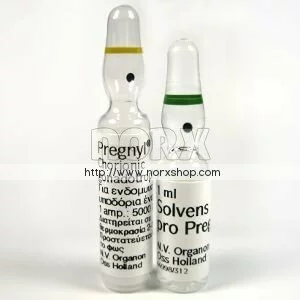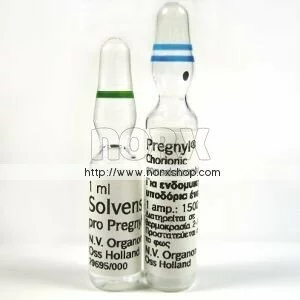|
A trial study: the effect of low dose human chorionic gonadotropin on the symptoms of benign prostatic hyperplasia. Author(s): Godschalk MF, Unice KA, Bergner D, Katz PG, Mulligan T, McMichael J. Virginia Commonwealth University School of Medicine, Richmond, USA.
PURPOSE
Human chorionic gonadotropin (HCG) is a glycoprotein hormone with multiple physiological functions. It interferes with mammary tumorigenesis and modulates growth and tumorigenesis in prostate cancer cells. In addition, HCG receptor transcripts and protein have been demonstrated in normal and hyperplastic prostate glands. Functionally HCG has a growth modulating effect on androgen independent prostate cell lines. We investigated the possible clinical effects of HCG on the symptoms associated with benign prostatic hyperplasia (BPH) in this trial study.
Benign prostatic hyperplasia (BPH) also known as benign prostatic hypertrophy, refers to the increase in size of the prostate in middle-aged and elderly men.
MATERIALS AND METHODS
We performed a multicenter, double-blind, placebo controlled, randomized pilot study evaluating the effects of low dose HCG vs placebo in 101 men (50 to 79 years old) with BPH. The primary efficacy measure was the American Urological Association total symptom index score. Secondary efficacy parameters included peak urinary flow and sexual self-efficacy questionnaire changes.
RESULTS
Low dose HCG appeared to positively effect moderate to severe BPH symptoms according to American Urological Association scores and sexual function but not peak urinary flow. No HCG induced changes were noted in prostate specific antigen or prostate volume.
CONCLUSIONS
These findings suggest that HCG may provide a well tolerated and beneficial therapy for BPH that will be investigated in subsequent studies.
|

